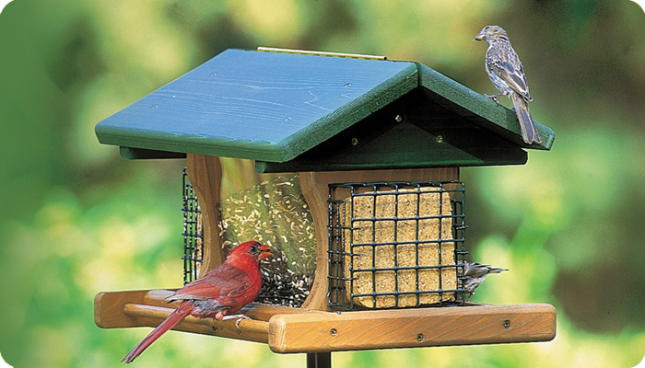
Some Reasons Why Birds Aren't Eating
Whether you have a new feeder or a well-established one, if the birds aren’t showing up, you may wonder why. Here are the most common reasons:
1. The food is no longer fresh or has gotten wet. Exposed to sun and humidity, seed is good in a feeder for only 2-3 weeks. If rain has seeped into the feeder, seed will spoil in just days. Much like we humans are reluctant to revisit a restaurant where we’ve had a bad experience, the birds will also avoid a “bad” feeder. Seed cylinders and suet should be tossed out if they're water logged or moldy. Nectar should be changed regularly, particularly during extremely hot periods. Until the birds are eating well, place only a small amount of seed in the feeder and change it regularly so that it is still fresh when they finally discover the feeder.
2. The feeder is new or has been left empty for a while. Birds locate food purely by sight, so while birds may notice the food right away, it could also take them a while. Three-four weeks would be average for an all-purpose feeder; possibly twice that time for a specialty feeder. Being prey species, birds can be wary of new objects, so even a shiny new feeder replacing an old one may require an adjustment period.
3. Patience is needed in some habitats. While birds can be attracted nearly everywhere, a new feeder in woodlands will be noticed faster than one in a new subdivision or in the middle of farmland void of large trees. Ask the experts at WBU - Green Bay what feeders will work best in your habitat.
4. Seed is stored improperly. As with human foods, heat and humidity will spoil seeds. Buy no more than you can use in about 6-8 weeks, and don’t store it in a hot shed or garage. If you have no option but to store it in a less-than-ideal location, buy only about two weeks worth at a time. WBU - Green Bay gets a fresh shipment each week, so you know our seed is fresh when you buy it.
5. The feeder is dirty. Birds don't like to eat out of a dirty, moldy feeder anymore than you'd eat off a dirty plate. A dirty feeder can harbor mold and bacterial, which is unhealthy for birds and will make new seed spoil faster. Wash feeders every couple of months with a mild bleach solution (one part bleach to ten parts water). Be sure to rinse the feeder well and allow to air dry in the sun before refilling with food.
6. The wrong seed or blend in being used. The wrong feeder/seed combination can result in poor bird activity. Each species of bird has its favorite foods, so getting that right is an important start, and not all feeder styles can dispense foods equally, meaning even the right food in the wrong feeder will make the food inaccessible. Ask the experts at WBU - Green Bay to help you choose the right food and the right feeders for the birds you want to attract. Note: WBU seed blends never contain filler grains or seeds like those often found in discount store blends. Most songbirds avoid these fillers altogether. CLICK HERE to see what types of birds these cheap fillers attract.
7. Predators! A hawk lurking around will make birds scarce. As hunting becomes more difficult, hawks tend to move on. After a few weeks, the songbirds usually return. Outdoor cats can also be an issue. Ask an expert at WBU - Green Bay for additional advice on predators.
8. Feeders are located too close together or in inappropriate locations. Some feeders styles can be grouped together, while some specialty feeders work best when placed away from other birds. Each bird species has its favored feeding spots. For example, woodpeckers will be happiest near trees, while goldfinches will typically prefer to be out in the open.
9. Natural cycles. Birds feed at feeders all year long, but activity will be highest during bad weather and during nesting season. Birds may visit less if natural sources are abundant - insects, berries, fruits, worms and more. Yards with little natural cover for protection may be quiet during winter winds.
10. Feeders are Broken/Defective/Wrong Style. Occasionally we see feeders in non-usable states of disrepair or ones so poorly designed they aren’t functional.
Thankfully, if one or more of these reasons apply to your feeders, the remedy is usually pretty simple and you should have birds returning soon enough. Stop by our store for more detailed assistance or for a bag of fresh birdseed.
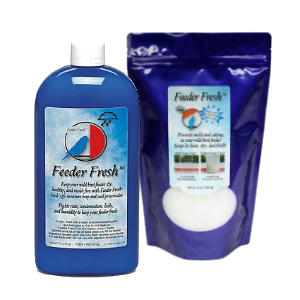 |
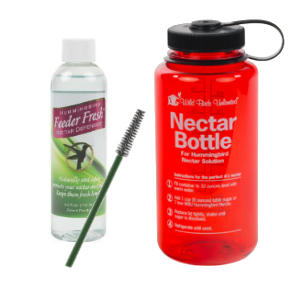 |
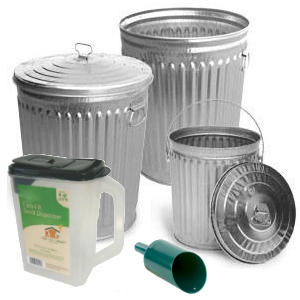 |
| Keep Seed Fresh | Keep Nectar Fresh | Food Storage |
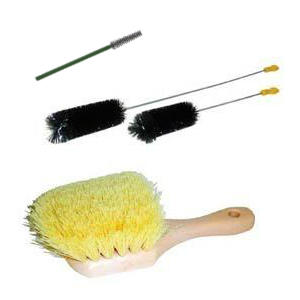 |
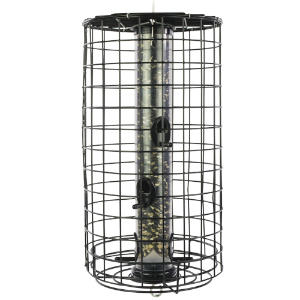 |
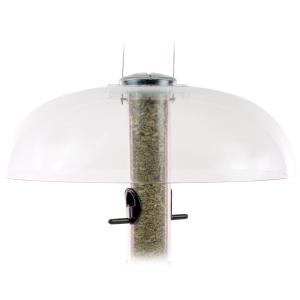 |
| Keep Feeders Clean | Keep Predators Out | Keep Seed Dry |

